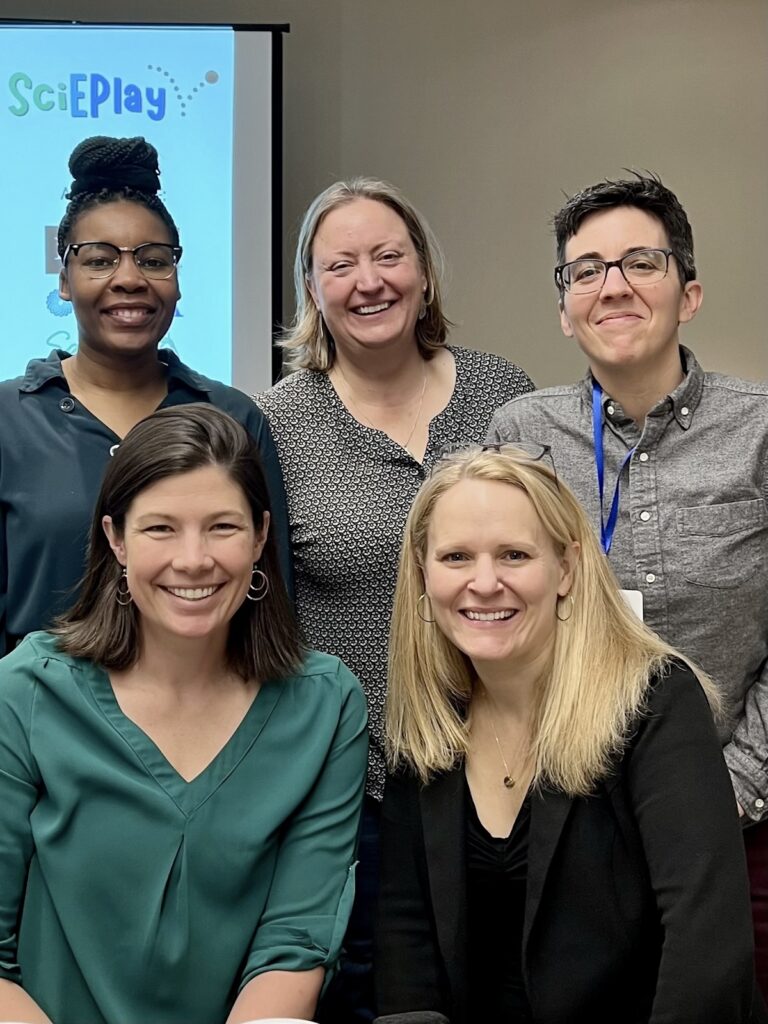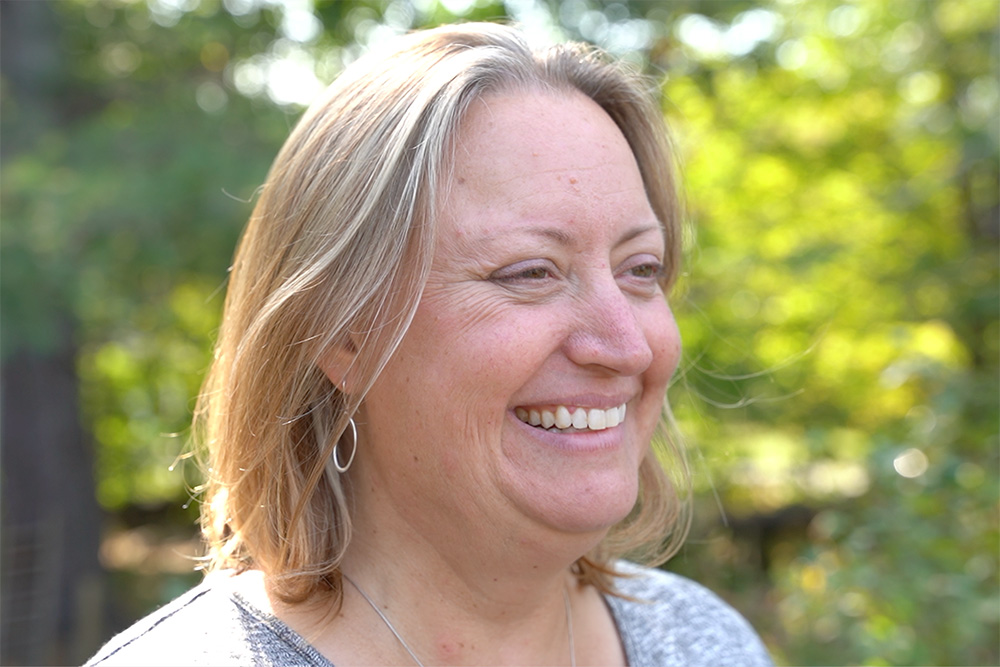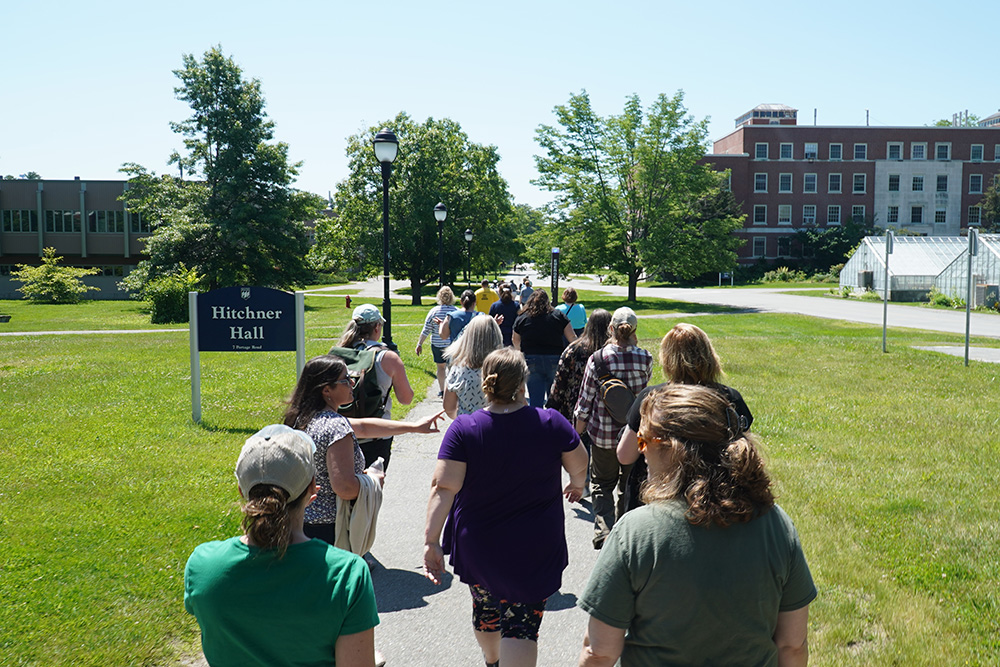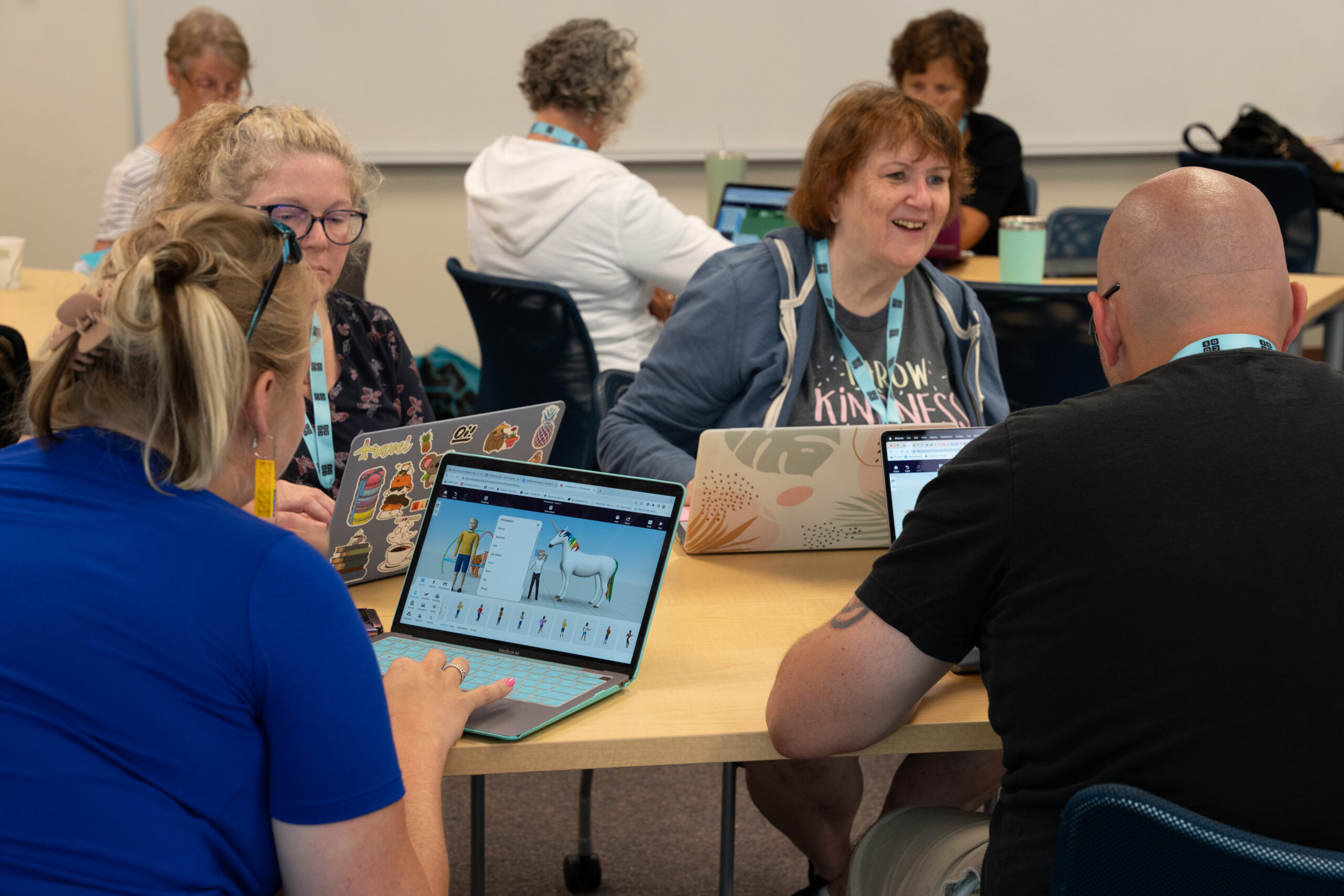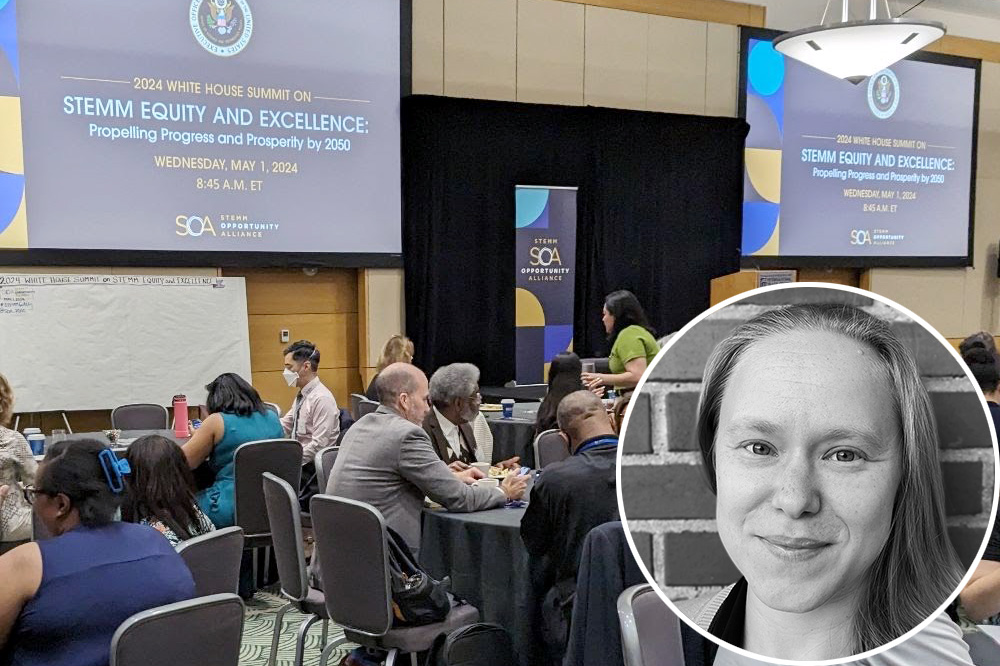Meet Rachel Larimore, Ph.D., founder and chief visionary of Samara Early Learning and one of our key collaborators on the SciEPlay project. Rachel is a celebrated educator, speaker, consultant, and author of multiple books, including Establishing a Nature-Based Preschool, Preschool Beyond Walls, and Evaluating Natureness. Her passion and expertise is nature-based early childhood education to support children’s holistic development. We sat down with Rachel to learn more about her work and her collaboration with the SciEPlay project.
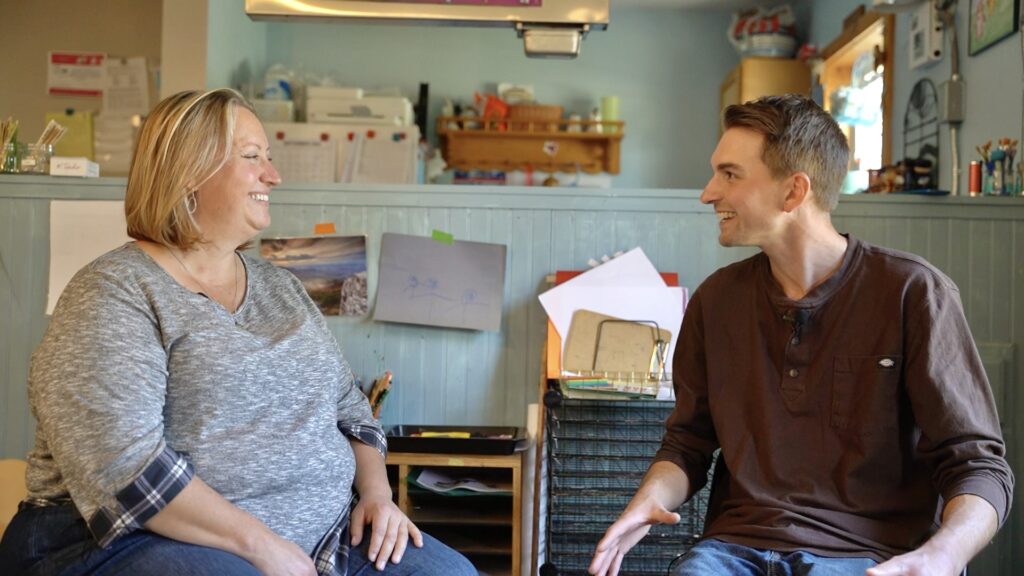
Tell us a bit about yourself and your work.
I’m an author and educational consultant based out of Michigan. I work with early childhood educators and program directors who want to create nature-based schools or integrate nature-based learning into their existing programs. Through my consulting business, Samara Early Learning, I offer support with curriculum, staffing, operations, business planning, and more! From on-demand workshops to in-person coaching, we provide a wide range of resources and services for early childhood educators seeking to increase children’s connection with the natural world. If you’re curious to know more, feel free to check out our website and follow Samara Early Learning on Facebook and Instagram.
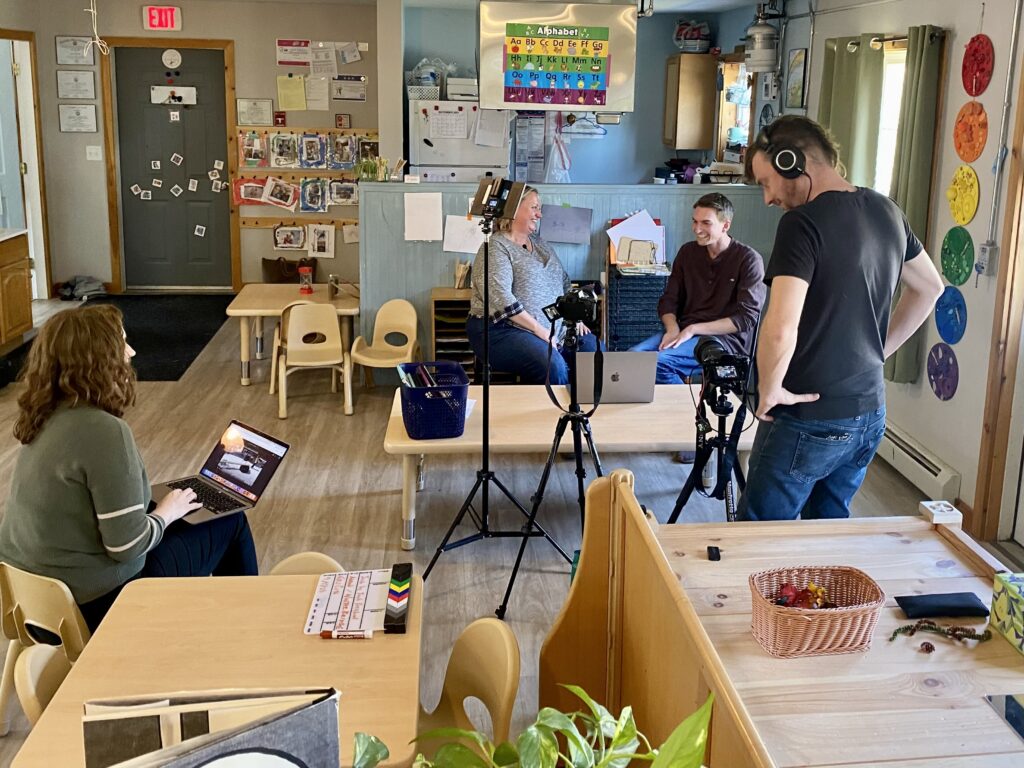
Why is nature important for young children?
There are many benefits of nature to children’s overall health. Physically they’re more active, the sunlight helps with prevention of nearsightedness and improved sleep, and nature play leads to better balance and coordination. Socially and emotionally, the outdoors support children’s self-regulation, empathy and care, and peer interactions. Cognitively, the outdoors engages all of the senses. Those are the many benefits of just being outdoors. There are even more benefits when we shift to thinking about learning with nature rather than just in it. That’s why I use the term “nature-based” play and learning instead of outdoor play – to highlight an even deeper connection with the natural world.
How is nature-based play connected to science learning?
The ever-changing natural world provides an endless opportunity for learning in all domains, but particularly related to science and sense-making! Think about all of the potential phenomena to explore on a single tree: seeds, buds, and leaves; water movement and pressure from roots to leaves and vice-versa; lichen on the bark; birds nesting in the branches; insects laying eggs to create a gall. And that’s all on ONE tree! Nature provides so many moments to spark children’s curiosity and invite them to investigate further, to connect to other phenomena they’ve experienced, and ultimately to build an emotional and intellectual connection to our incredible world.

Can you tell us about your collaboration with the SciEPlay project?
I first connected with MMSA and Bowdoin College after team members had read an article I wrote in 2020 titled “Preschool Science Education: A Vision for the Future.” We scheduled a Zoom call to chat more because we all felt such strong alignment about children’s right to make sense of their world and how to support them in that process. And in true small world fashion, I also worked with Kate Cook Whitt of MMSA on another science education project, and Alison Miller of Bowdoin College worked with my doctoral advisor. It all felt like it was meant to be, and about halfway through our Zoom call, we were already starting to draft a proposal for the National Science Foundation. That proposal was eventually accepted, leading to the formation of the SciEPlay project.
Where can I learn more about the SciEPlay project?
Our SciEPlay video is a great place to start. If you want to dive deeper, visit the project webpage and follow MMSA on social media (Facebook, Instagram, and X /Twitter). I also encourage you to check out the work of our partners at Bowdoin College, and if you’re curious about nature-based education, you can check out our Samara Early Learning page as well. We look forward to connecting with you!
